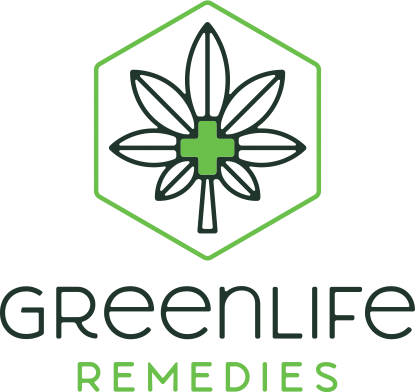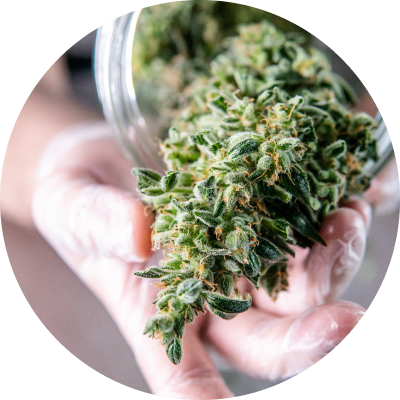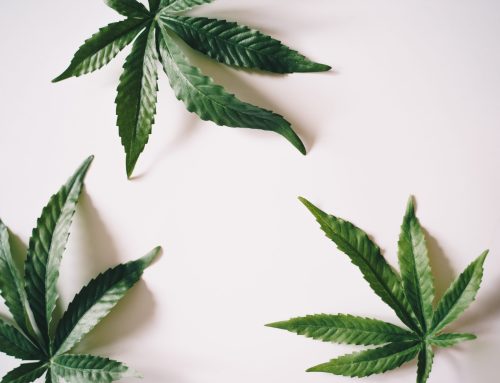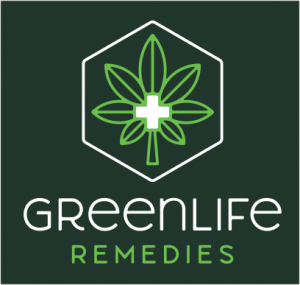Did you know the cannabis market is expanding fast, introducing to our awareness all kinds of terms and lingo that can be extremely confusing to newcomers in particular? In fact, you may have noticed that delta 9 THC has entered the legal hemp market, and naturally, a lot of people are asking if delta 9 is the same thing as weed. To make things even more complicated, we also have delta 8 and delta 10, which are easy to assume are all the same thing, despite the fact that these three hemp-derived compounds have distinctive differences from one another. Let’s dive into all of these terms to give you a clearer idea of what each of these compounds are, and how they’re related to weed.
What is Weed?
Weed, aka marijuana, is a plant that comes from the cannabis genus – the same genus responsible for hemp. Marijuana and hemp have a lot in common – in fact, at first glance, they’re identical, with the same aroma and flavor as one another. But, there’s one key difference, which is that marijuana yields a high amount of THC, aka tetrahydrocannabinol – up to 25%, or even higher in certain strains. Hemp, meanwhile, produces about 0.3% THC, which is far below the limit needed to actually get a person high. For that reason, hemp is federally legal, and marijuana is not.
How THC Works
Traditionally, the term “THC” refers to delta 9 THC – the primary cannabinoid in marijuana that we just talked about earlier. But in fact, there are many THC compounds that exist in much more minor levels in the plant, and what they all share in common with one another is that they get us high by acting on CB1 receptors, which are cannabinoid receptors in the brain that use these cannabinoids to produce a psychoactive response. Each one’s high is unique, and we’ll get into that a bit more later.
History of THC
THC is easily one of the most controversial plant compounds in history. There’s evidence that people were getting high off of it literally thousands of years ago, in Asia where cannabis is native. Over the following thousands of years, cannabis made its way across the world through trade, celebrated for its intoxicating qualities as well as its medicinal uses.
Marijuana came to America with the early settlers, who were instructed to grow cannabis on their farms to support the British cannabis trade. At the same time, settlers began discovering that hemp, marijuana’s cousin plant, was useful for various forms of textiles due to its fibrous stalks. Marijuana was used recreationally throughout America through the 19th and early 20th centuries, with its cultural popularity peaking in the 1920s before anti-marijuana stances became mainstream in the 1930s, during the Great Depression. The first big blow to the cannabis industry was in 1937, with the Marihuana Taxation Act that put an unreasonably high tax on all cannabis products, including both hemp and marijuana. Then, in 1970, cannabis became a controlled substance on the federal level, making it strictly illegal.
It wasn’t until the late 1990s that states across the country began passing medical marijuana laws, that allowed residents to apply for a medical marijuana card based on their medical conditions, in order to be able to legally purchase cannabis from state-licensed dispensaries. Following that came states legalizing recreational marijuana, and more and more states are legalizing recreational cannabis as we speak.
Forms of THC
THC is a compound that can be extracted from either hemp or marijuana, as it’s found in both plants. THC extract can then be used to produce a wide array of product types, so let’s go over the main ones that you’ll find on the market.
- THC Vapes: THC vapes refer to vaping products consisting of THC distillate and terpene extracts. Available as either a pre-filled vape cartridge (to attach to a rechargeable vape pen) or an all-in-one disposable device, THC vapes give us fast-acting, potent effects that last for about 1-3 hours, and allow us to choose from all kinds of great strains.
- THC Edibles: THC edibles are edible products infused with a THC distillate, with gummies easily being the most popular category of edibles on the market. Edibles offer the longest-lasting effects out of any product type – usually up to 8 hours, but also take the longest to kick in, at roughly 2 hours. Edibles also come with the distinctively strong body high that so many users find deeply relaxing.
- THC Tinctures: If you can’t decide between edibles and vapes, tinctures are a great “happy medium,” so to speak. The effects are less potent than vapes but usually more potent than edibles, and can last for about 4-6 hours, taking about 1 hour to kick in. Tinctures come in various milligram strengths, and the formula is held below the tongue to absorb sublingually.
- THC Concentrates: THC concentrates, also known as “dabs,” are highly concentrated products with potency levels far above other product types, which is why they’re recommended for experienced users. Concentrates come in all kinds of forms, like wax, shatter and rosin, and are “dabbed,” or flash-vaporized, at high temperatures using dabbing equipment.
- THC Flower: THC flower can refer to weed, aka marijuana, which naturally yields a high THC level, or the federally legal hemp flower which can be infused with any THC distillate other than delta 9 THC. Delta 8 and delta 10, for instance, are federally legal, and infusing either into raw flower buds can offer up a glorious high.
Uses of THC
We already talked about the fact that THC is psychoactive, and the high alone is a big reason why so many people seek it out. THC can produce feelings of euphoria and intense relaxation, along with a body high that can range from warm and tingly to full-on couchlock, aka a feeling of being “glued” to the couch. But, like we said earlier, THC is also used medicinally throughout the country because its properties go above and beyond just getting us high.
Each THC cannabinoid is unique, but they do share specific qualities in common. THC compounds are found to offer anti-inflammatory properties as well as analgesic properties, which can be extremely helpful to anyone who is trying to manage physical discomfort. There are also neuroprotective properties, which are being studied for their potential uses in treating epilepsy and other neurological disorders, along with potentially positive effects on sleep, stress levels, appetite, nausea and more.
THC in CBD
A question we get asked often is whether or not there’s any THC in CBD. This question is actually a bit complicated to answer, because so many terms related to cannabis are used interchangeably with one another. CBD and THC are ultimately two unique cannabinoids that both exist in cannabis. CBD is non-psychoactive, while THC is. And, CBD is federally legal, while delta 9 THC that’s derived from marijuana is not.
But, THC can exist in CBD products. Cannabis products can contain both THC and CBD in various levels, and the amount of THC in a hemp product will always be indicated. Also, full spectrum hemp products contain about 0.3% THC, because that’s the amount that naturally occurs in hemp. Again, this amount is too low to get you high, so keep that in mind.
What is CBD?
We said that THC can be found in some CBD products, but what exactly is CBD, anyway? Well, CBD is the dominant chemical compound in the hemp plant, short for cannabidiol. CBD is, like we said, non-intoxicating, since it doesn’t act on the same cannabinoid receptors as THC, which create the psychoactive response. But, CBD is immensely valuable in other ways. Many people use cannabidiol to help with things like mood, sleep, physical discomfort and nausea, finding it to be enormously helpful when it comes to how they feel on a daily basis. Mixing CBD with THC creates a positive synergistic effect in which the two cannabinoids together can offer even more potential benefits, and even mixing some CBD with your THC can be helpful if you’re a beginner who is slowly developing a tolerance to THC’s high.
What are Delta 8, Delta 9, and Delta 10?
Now, let’s touch upon the differences between delta 8, delta 9 and delta 10, all of which exist naturally in cannabis.
- Delta 8 THC is a minor cannabinoid that’s about 70% as intoxicating than delta 9. Its effects are known to be very indica-like – aka soothing, mellowing and great for nighttime.
- Delta 10 THC, like delta 8 THC, is 70% as intoxicating as delta 9 THC. However, unlike delta 8’s soothing effects, delta 10 is more sativa-like, being uplifting, focus-enhancing and motivating, while promoting sensations of euphoria.
- Delta 9 THC is the most famous form of THC, and is the dominant compound in marijuana, but exists in 0.3% of the hemp plant. We already discussed its unique properties and qualities, and its psychoactive effects are notably stronger than the other two.
Check Out Our Selection of THC Compounds Today!
THC has been sought-after for its effects for thousands of years, and to this day it’s one of the most popular naturally occurring intoxicants in the world for a reason. At Greenlife Remedies, we strictly carry THC products that are fully compliant with federal and local law, offering up delta 8, delta 9, delta 10, and more, all derived from hemp and thoroughly lab-tested by a third-party. Visit our store today and explore our variety of THC-infused formulas to find what’s right for you.





